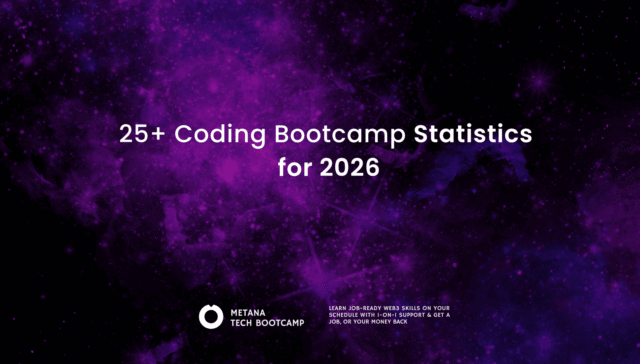Question:
Is it hard to become a data analyst?
Direct Answer:
It’s challenging but absolutely achievable – becoming a data analyst requires dedication and continuous learning, but it’s not insurmountable with the right approach and mindset.
What is Data Analytics?
Data Analytics is the process of analyzing raw data to extract valuable insights. It involves applying an algorithmic or mechanical process to derive patterns within data. From healthcare and marketing to finance, data analytics is reshaping industries and offering remarkable opportunities.
Skills Required for Data Analytics
A successful data analyst requires a blend of skills, both technical and non-technical.
Technical Skills
- Statistical Knowledge: Profound understanding of statistical theory is a must. It enables analysts to decide on the right model and interpret results accurately.
- Programming: Knowledge of programming languages like R, Python, and SQL is pivotal for data extraction, manipulation, and visualization.
- Machine Learning: Familiarity with machine learning techniques increases the depth and variety of data analysis.
Non-Technical Skills
- Critical Thinking: The ability to question assumptions, identify patterns, and make logical conclusions is crucial in data analytics.
- Communications Skills: Analysts must convey their findings effectively to stakeholders.
Benefits of Data Analytics
Data analytics brings multifarious benefits to the table:
- Data-Driven Decision Making: Businesses can make informed decisions, thereby improving efficiency and profitability.
- Risk Management: Data analytics helps identify and mitigate potential threats, enhancing risk management.
- Personalized Customer Experience: Businesses can tailor products and services to customer preferences, driving customer loyalty and retention.
Is It Difficult to Become a Data Analyst?

Becoming a data analyst might seem a little scary at first. After all, you need to learn lots of technical stuff. But don’t worry, With the right attitude and a willingness to keep learning, you can do it! Remember, becoming a data analyst is a journey where you keep growing and learning.
Data analysis involves lots of complex techniques and tools, but don’t let that scare you. Be curious, be determined, and remember that we all start at the beginning. See challenges as chances to get better and to understand more about data analysis.
Also, remember that there are lots of resources out there to help you. You can find online courses, tutorials, forums, and communities all about data analysis. These are great places to learn, get help, and connect with other people who are also learning. You’re not alone on this journey.
Overcoming Learning and Development Obstacles
- Develop a Strong Foundation: Start by gaining a solid understanding of statistics, mathematics, and programming languages. These foundational skills will serve as the building blocks for your data analysis journey. Take courses, engage in self-study, and practice applying these concepts to real-world scenarios.
- Hands-on Experience: Theory alone is not sufficient for becoming a skilled data analyst. Actively seek practical experience through internships, projects, or freelance work. Working with real datasets and solving analytical problems will help you develop a deeper understanding of data analysis principles and enhance your problem-solving abilities.
- Embrace Continuous Learning: Data analysis is a rapidly evolving field, and staying up-to-date with the latest tools, techniques, and industry trends is crucial. Continuously seek opportunities to expand your knowledge through online courses, data analysis bootcamps, webinars, conferences, and professional communities. Stay curious and explore new technologies and methodologies to enhance your skill set.
- Seek Mentorship and Guidance: Connect with experienced data analysts who can provide guidance and advice. Mentors can offer valuable insights, share their experiences, and provide feedback on your progress. Engaging with a mentor can help accelerate your learning and provide valuable industry perspectives.

Importance of Continuous Learning and Professional Growth
Continuous learning is an integral part of a successful career as a data analyst. The field of data analysis is constantly evolving, and staying updated with new tools, techniques, and industry trends is essential for professional growth.
By engaging in continuous learning, you can:
- Stay abreast of emerging technologies and tools in data analysis.
- Expand your skill set to tackle new challenges and opportunities.
- Deepen your understanding of advanced statistical methods and algorithms.
- Improve your expertise in data visualization and communication.
- Enhance your problem-solving abilities and critical thinking skills.
- Remain competitive in a rapidly evolving job market.
Investing in your professional growth through continuous learning helps you stay at the forefront of the data analysis field and ensures that you can deliver high-quality insights and value to organizations.
Utilizing these strategies and embracing continuous learning will enable you to overcome challenges and thrive as a data analyst, ensuring that you stay ahead in this dynamic and exciting field. Remember, the path may have its obstacles, but with perseverance, dedication, and a growth mindset, you can successfully navigate them and build a rewarding career as a data analyst.
Conclusion : Is It Hard To Become A Data Analyst?
So, is it hard to become a Data Analyst? There are challenges, as with any profession. However, with a passion for discovery, a curiosity for finding patterns, and a commitment to learning, these challenges can be overcome. Remember, the journey to becoming a data analyst is not a sprint, but a marathon. With persistence and patience, you’ll find that the rewards of an exciting, dynamic, and growing field far outweigh the challenges.
FAQs
- Is data analytics hard?
Data analytics may initially seem daunting. However, with determination, patience, and the right approach, it can be navigated successfully.
- What skills are required for data analytics?
Both technical skills like programming and statistical knowledge, and non-technical skills like critical thinking and communication are essential.
- What are the top tools for data analytics?
Popular tools for data analytics include Python, R, SQL, Tableau, and Excel.
- How to start learning data analytics?
Begin with understanding the basics, learn relevant tools and languages, apply your knowledge in real-world scenarios, and importantly, stay updated.
- What is the job of a data analyst?
A data analyst interprets data, analyzes results, and provides reports to guide strategic company decisions.
- Are there good job prospects in data analytics?
Absolutely. With the rise of data-driven decision making, skilled data analysts are in high demand across industries.
- What is the relevance of machine learning in data analytics?
Machine learning techniques add depth to data analysis, enabling predictive modeling and advanced data interpretation.
- What kind of statistical knowledge is needed for data analytics?
Knowledge of descriptive and inferential statistics, probability theory, and statistical modeling methods is critical for data analytics.
- Why are communication skills important for data analysts?
Data analysts often need to convey complex information in an easily understandable manner to stakeholders, making communication skills crucial.
- What is the role of critical thinking in data analytics?
Critical thinking allows data analysts to question assumptions, identify patterns, and make logic-driven conclusions from data.







